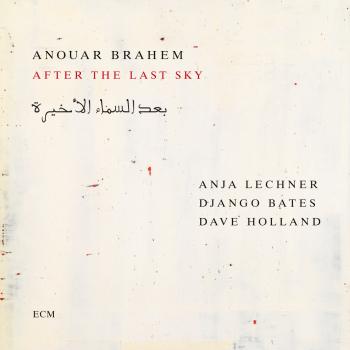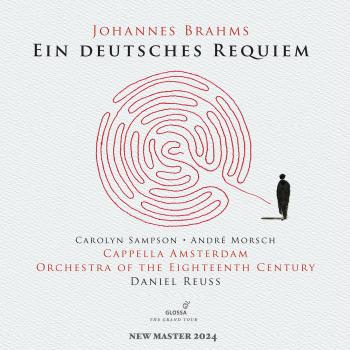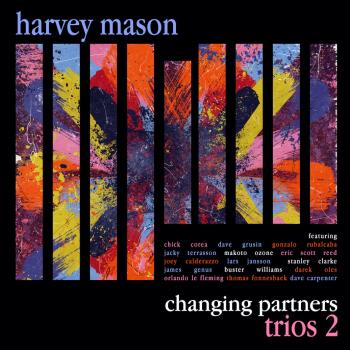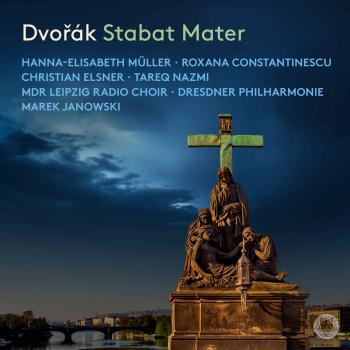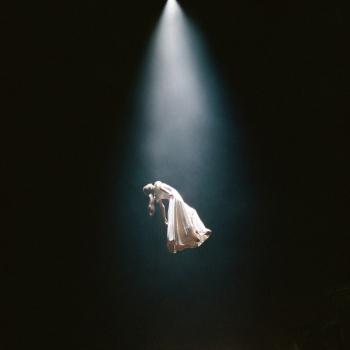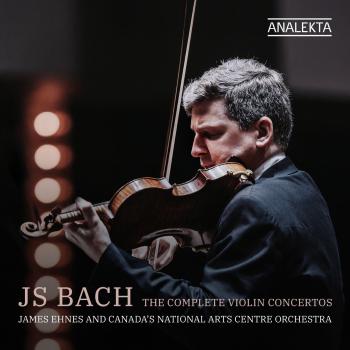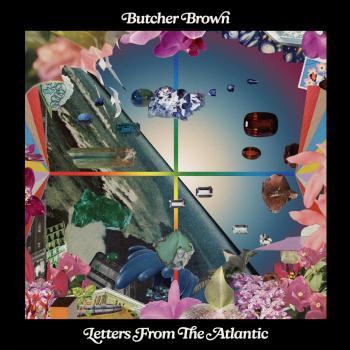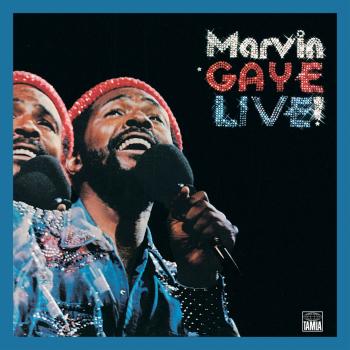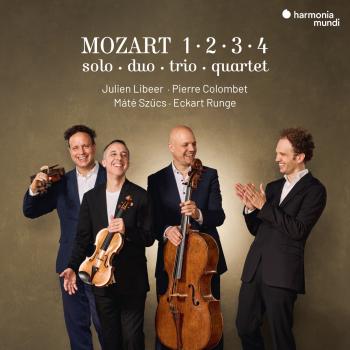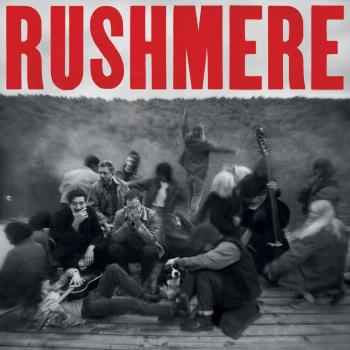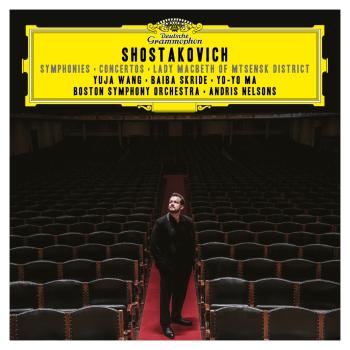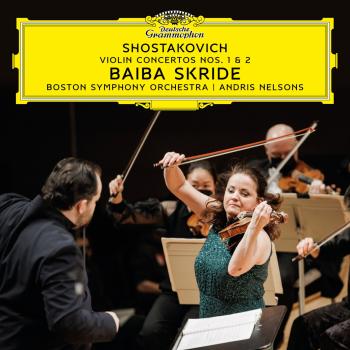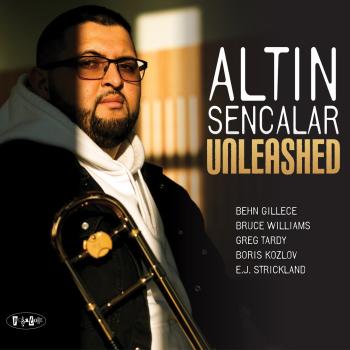
Gervasoni, Pesson, Poppe Quatuor Diotima
Album Info
Album Veröffentlichung:
2021
HRA-Veröffentlichung:
18.02.2022
Label: naïve
Genre: Classical
Subgenre: Chamber Music
Interpret: Quatuor Diotima
Komponist: Stefano Gervasoni (1962), Gerard Pesson (1958), Enno Poppe (1969)
Das Album enthält Albumcover Booklet (PDF)
Entschuldigen Sie bitte!
Sehr geehrter HIGHRESAUDIO Besucher,
leider kann das Album zurzeit aufgrund von Länder- und Lizenzbeschränkungen nicht gekauft werden oder uns liegt der offizielle Veröffentlichungstermin für Ihr Land noch nicht vor. Wir aktualisieren unsere Veröffentlichungstermine ein- bis zweimal die Woche. Bitte schauen Sie ab und zu mal wieder rein.
Wir empfehlen Ihnen das Album auf Ihre Merkliste zu setzen.
Wir bedanken uns für Ihr Verständnis und Ihre Geduld.
Ihr, HIGHRESAUDIO
- Stefano Gervasoni (b. 1962): Clamour - Terzo quartetto per archi:
- 1 Gervasoni: Clamour - Terzo quartetto per archi 24:04
- Six Lettres à l'obscurité (und zwei Nachrichten):
- 2 Gervasoni: Six Lettres à l'obscurité (und zwei Nachrichten): No. 1, C 01:03
- 3 Gervasoni: Six Lettres à l'obscurité (und zwei Nachrichten): No. 2, L 03:07
- 4 Gervasoni: Six Lettres à l'obscurité (und zwei Nachrichten): No. 3, Erste Nachricht 04:43
- 5 Gervasoni: Six Lettres à l'obscurité (und zwei Nachrichten): No. 4, A 01:16
- 6 Gervasoni: Six Lettres à l'obscurité (und zwei Nachrichten): No. 5, I (…R) 03:28
- 7 Gervasoni: Six Lettres à l'obscurité (und zwei Nachrichten): No. 6, Zweite Nachricht 04:20
- 8 Gervasoni: Six Lettres à l'obscurité (und zwei Nachrichten): No. 7, R 06:37
- 9 Gervasoni: Six Lettres à l'obscurité (und zwei Nachrichten): No. 8, E… 02:38
- Strada non presa:
- 10 Gervasoni: Strada non presa 18:55
- Gérard Pesson (b. 1958): Respirez ne respirez plus (String Quartet No. 1):
- 11 Pesson: Respirez ne respirez plus (String Quartet No. 1) 09:54
- Bitume (String Quartet No. 2):
- 12 Pesson: Bitume (String Quartet No. 2) 17:45
- Nebenstück:
- 13 Pesson: Nebenstück 08:42
- Farrago (String Quartet No. 3):
- 14 Pesson: Farrago (String Quartet No. 3) 23:41
- Enno Poppe (b. 1969): Buch:
- 15 Poppe: Buch: No. 1, Marcato 06:00
- 16 Poppe: Buch: No. 2, Viertel = 60 08:20
- 17 Poppe: Buch: No. 3, Viertel = 108 02:12
- 18 Poppe: Buch: No. 4, Viertel = 144 03:35
- 19 Poppe: Buch: No. 5, Viertel = 50 09:50
- Zwölf:
- 20 Poppe: Zwölf 03:57
- Tier:
- 21 Poppe: Tier 14:36
- Freizeit:
- 22 Poppe: Freizeit 04:33
Info zu Gervasoni, Pesson, Poppe
This new showpiece in the Collection Diotima, in which the eponymous quartet devotes itself to monographies of contemporary composers, offers here a triple line-up of some of the foremost composers of their generation: this album is a living image of serious music today, which in this 21st Century has focused on exploring the multifaceted realm of sound. Stefano Gervasoni (b. Italy, 1962), Gérard Pesson (b. France, 1958) and Enno Poppe (b. Germany, 1969) has each, in his own way, renewed the tradition and technique of writing for the string quartet.
In three pieces written between 2005 and 2015, Gervasoni presents new textures and a fragmentation of form, playing with chiaroscuro effects and showing a fascination for silence - that abyss that is the very opposite of sound.
Gérard Pesson, whose three string quartets (1993-2013) are played here by the Diotima Quartet, practices a subtle poetics of erasure, and is not afraid to recycle the past (the music of Brahms, with Pascal Moraguès adding his clarinet to the strings), while his rather elegiac temperament often hovers on the border of silence.
Finally, Enno Poppe, whose style explores “gestures, cells that are encoded and transformed, creating a tissue of infinite ramifications based on perpetual variation” (Martin Kaltenecker, Associate Professor of Musicology at Université Paris Diderot and co-founder of contemporary music magazine Entretemps). Buch (2013-16) shows touches of humour, as well as containing references to the music of Pierre Boulez.
With their usual mastery, the Quatuor Diotima opens the doors to these three different worlds, allowing us to “access levels of beauty and intensity that are rare in our time” (Martin Kaltenecker).
Quatuor Diotima
The Quatuor Diotima
is one of the most in-demand chamber ensembles in the world today. It was formed in 1996 by graduates of the Paris National Conservatory.
The quartet’s name evokes a double musical significance: Diotima is at once an allegory of German romanticism – Friederich Hölderlin gives the name to the love of his life in his novel Hyperion- and a rallying cry for the music of our time, brandished by Luigi Nono in his composition Fragmente-Stille, an Diotima.
The Quatuor Diotima has worked in close collaboration with several of the greatest composers of the late twentieth century, notably Pierre Boulez (who revised his Livre pour Quatuor for them) and Helmut Lachenmann. The quartet regularly commissions new works from the most brilliant composers of our time, including Toshio Hosokawa, Miroslav Srnka, Alberto Posadas, Mauro Lanza, Gérard Pesson, Rebecca Saunders and Tristan Murail.
Reflected in the mirror of today’s music, the quartet projects a new light onto the masterpieces of the 19th and 20th centuries, especially Beethoven, Schubert, the Second Viennese School (Schoenberg, Berg and Webern), as well as Janáček, Debussy, Ravel and Bartók.
In the quartet’s rich discography one finds, notably, their interpretations of the Bartok’s quartets, the Second Viennese School and the definitive version of the Livre pour Quatuor by Pierre Boulez (on Megadisc). Their recordings are regularly praised and awarded by the international musical press: French magazine Diapason’s Diapason d’Or (five awards including two Best of the Year), Classica (Best of the Year), Télérama, Grammophone (Editor’s Choice), The Strad, and many others.
The Quatuor Diotima has recorded exclusively for the Naïve label for ten years; in 2016 they launched their Diotima Collection for that label, devoted to the works of major composers of our time. The first releases in the collection, devoted to Miroslav Srnka and Alberto Posadas, are to be followed with musical portraits of Gérard Pesson, Enno Poppe and Stefano Gervasoni. In 2019, Quatuor Diotima will record works by Rune Glerup, Tristan Murail and Rebecca Saunders.
Since 2008 The Quatuor Diotima has had a privileged relationship with the Région Centre-Val de Loire, which hosts the quartet in residence. This relationship is also an important laboratory for artistic and pedagogical projects. The Quatuor Diotima has developed a series of quartet concerts in Orléans that brings together a new generation of quartets with established ensembles. At the l’Abbaye de Noirlac, the quartet hosts and teaches master-classes that bring together young composers and quartets from around the world.
The Quatuor Diotima appears regularly in the world’s finest halls and concert series. They will perform this season in renowned chamber music series (e.g. Konserthuset Stockholm, Concertgebouw Brugge, Muziekgebouw Amsterdam) as well as those devoted to premiers and contemporary music (e.g. GNEM Marseille, Gong Festival Copenhagen, Wien Modern or Transit Leuven). Their debut at Philharmonie Berlin will be followed by many engagements in Germany, such as Nürnberg, Stuttgart, Kassel, Hamburg, Schwetzingen, Munich, Diusburg and Hannover.
New works to be premiered this season include those by Eric Tanguy (octet), Enno Poppe (quintet for two celli) and Oscar Bianchi.
The Quatuor Diotima is also regularly invited by the University of York for a series of concerts, chamber music master classes, and to work with student composers.
Autumn of 2018 marks the beginning for the quartet of a three-year residence as invited artists at Radio France in Paris. During the residence period they will perform their habitual repertoire, but will also work with guest musicians in chamber music and rare works for quartet and orchestra, as well as several commissioned works in partnership with other concert series and European radio services. In 2019-2020, the Quatuor Diotima will perform the late string quartets by Ludwig van Beethoven in a series of three concerts.
The Diotima Quartet is supported by the DRAC and the Région Centre-Val de Loire, and regularly receives assistance from the Institut Français, Spedidam, Musique Nouvelle en Liberté, Fonds pour la Création musicale and from Adami, as well as from private sponsors.
2018 Diotima Quartet has been awarded the European Cultural Heritage Award by the French Ministry of Culture
Stefano Gervasoni
Born in Bergamo in 1962, Stefano Gervasoni began studying composition in 1980 on the advice of Luigi Nono: this encounter, as well as others with Brian Ferneyhough, Peter Eötvös and Helmut Lachenmann, turned out to be decisive for his career. After attending the Giuseppe Verdi Conservatory in Milan, where he studied with Luca Lombardi, Niccolò Castiglioni and Azio Corghi, Stefano Gervasoni met György Ligeti in Hungary in 1990, and then, in 1992, he attended the IRCAM Course in Composition and in Computer Music in Paris. The first three years in France launched Gervasoni's international career that eventually led him to be artist-in-residence at Villa Medici in Rome for the biennium1995-1996.
With commissions from prestigious institutions such the WDR, the SWR, the Orchestra Nazionale della RAI, the Münchner Kammerorchester, the Festival d'Automne in Paris, Radio France, IRCAM, the Casa da Musica in Porto, the Festival Archipel in Geneva, the Divertimento Ensemble in Milan, the Ensemble Intercontemporain, the Ensemble Modern, the Ensemble Contrechamps in Geneva, the Maerzmusik festival in Berlin, the Ars Musica Bruxelles, the Festival Musica in Strasbourg, the French Ministry of Culture, Milan Teatro alla Scala and Suntory Hall in Tokyo, Stefano Gervasoni has established himself as one of the most important Italian composers of his generation. His catalogue – which includes chamber and vocal music, concertos, works for orchestra, for ensemble and an opera (Limbus-Limbo) – is published by Ricordi and by Suvini Zerboni.
Winner of numerous prizes, including the recent "Serge Koussevitzky Music Foundation Award" (2018) and Premio della Critica Musicale "Franco Abbiati" (2010), his work has allowed him to be a grant-holder at the Fondation des Treilles in Paris (1994) and at the DAAD in Berlin (2006) and composer-in-residence at Villa Médicis in Rome as fellow at the Académie de France for the years 1995-96 and at the Domaine de Kerguéhennec during the period 2008-2010. He has also been invited to teach at the Darmstadt Ferienkurse, on the courses organised by the Fondation Royaumont (Paris), at Toho University in Tokyo, at the Festival International de Campos do Jordão in Brazil, at the Conservatory in Shanghai, at Columbia University (New York), at Harvard University (Boston) and at Takefu International Music Festival. He has been composer-in-residence at Lausanne Conservatoire (2005) and at Yellow Barn Summer Academy (Vermont, 2016). Moreover, he has been visiting professor at ESMUC in Barcelona for the 2012-13 academic year.
Since 2006 Stefano Gervasoni has held a regular teaching position as professor of composition at Conservatoire National Supérieur de Musique et de Danse in Paris.
The musicologist Philippe Albèra wrote a substantial book on Stefano Gervasoni's work, Stefano Gervasoni. Le parti pris des sons, published in 2015 by Editions Contrechamps (Geneva). His last CD, entitled pas perdu has been released in 2018 by Winter & Winter.
Booklet für Gervasoni, Pesson, Poppe

